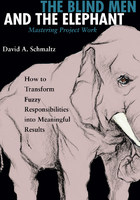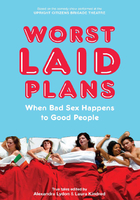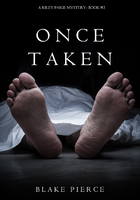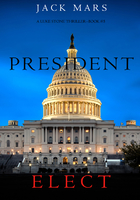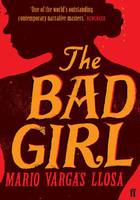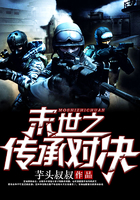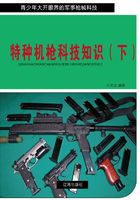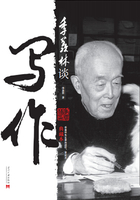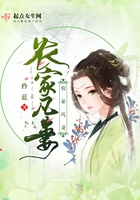Churchill was on his way to a scene of violent confrontation. Almost all the 'fierce wild warlike tribes of Afghan stock are in revolt', he explained to his brother on 31 August 1897, in a letter written in the train going north. More than 50,000 British and Indian soldiers had been massed against them. It was impossible, he added, for the British Government 'to be content with repelling an injury-it must be avenged. So we in our turn are to invade Afridis & Orakzais and others who have dared to violate the Pax Britannica.'
Behind Churchill, in the Bangalore region, less than five hundred British troops guarded an area inhabited by more than twelve million Indians, most of them Muslims sympathetic to the Afridis. Crossing an area of India almost as far in miles as America was from England, Churchill told his brother: 'It is a proud reflection that all this vast expanse of fertile, populous country is ruled and administered by Englishmen. It is all the prouder when we reflect how complete and minute is the ruling-and how few are the rulers.'
In the first week of September, Churchill reached the North-West Frontier at Malakand. There he learned that his mother had persuaded the influential Daily Telegraph to publish his letters from the war. She must decide whether or not they were to be signed with his name. 'I am myself very much in favour of signing,' he told her, 'as otherwise I get no credit for the letters. It may help me politically to come before the public in this way.'
Churchill had also persuaded the Allahabad Pioneer, for which Kipling had once written, to let him send them a three-hundred-word telegram every day from the frontier; it was this commission which made it possible for him to proceed to Sir Bindon Blood's headquarters. 'As to fighting,' he told his mother on September 5, 'we march tomorrow.' Before the week was over there would be a battle, 'the biggest yet fought on the frontier this year'. For himself, 'I have faith in my star-that I am intended to do something in this world. If I am mistaken-what does it matter? My life has been a pleasant one and though I should regret to leave it, it would be a regret that perhaps I should never know.'
While awaiting the start of the fighting Churchill sent his first nine letters to the Daily Telegraph, describing the situation on the frontier. They were published without his name, as being by 'a young officer'. In the confrontation on the North-West Frontier, he wrote in his letter of September 12, 'civilisation is face to face with militant Mohammedanism'. Given the 'moral and material forces' arrayed against each other, 'there need be no fear of the ultimate issue, but the longer the policy of half measures is adhered to the more distant the end of the struggle will be'.
Churchill now rode through the Mohmand valley to Nawagai. Eager to arrive 'in time for an action', he later explained to his mother, he rode on by himself ahead of a cavalry detachment 'and was met by nearly fifty armed tribesmen. Luckily they turned out to be friendlies-and were much amazed at my galloping wildly through them, pistol in hand. But how could I tell? I was so close on them that there was nothing for it but a dash.'
Having reached Nawagai without further incident, Churchill wrote to Reggie Barnes, 'The Mohmands need a lesson-and there is no doubt we are a very cruel people.' At Malakand, he explained, the Sikhs 'put a wounded man into the cinerator & burned him alive. This was hushed up.' Churchill added: 'I feel rather a vulture. The only excuse is that I might myself become the carrion.'
On the day after he wrote this letter Churchill was attached, at General Blood's request, to the Second Brigade of the Malakand Field Force, which had just been ordered into action. The temporary journalist was again a serving officer. On September 16, the day after his attachment to the Field Force, he saw the action he sought. It was near the frontier village of Markhanai. He began the day at half past six, riding forward with 1,300 cavalry and, he told his mother, 'saw the first shot fired'. After an hour of skirmishing he rode forward on his pony along a spur of the hillside with a Sikh infantry regiment, the 35th, 'until firing got so hot that my grey pony was unsafe'. He continued on foot. Then the order was given to retire down the spur. 'I remained till the last. The retirement was an awful rout in which the wounded were left to be cut up by these wild beasts.'
Two British officers standing near Churchill, Lieutenants Cassells and Hughes, were hit by Afridi rifle fire. Then an Afridi soldier, coming up to Hughes, tried to cut up his body. Churchill fired at him from thirty yards. 'He dropped but came on again.' Hughes was killed; Cassells survived. Together with a third subaltern, Churchill then carried a wounded Sikh soldier back towards the retreating troops, 'and might, had there been any gallery, have received some notice,' he told his mother. 'My pants are still stained with the man's blood.'
The Afridis came on to within forty yards. As Churchill and another young officer fired their pistols, the Afridis threw stones at them. Then they opened fire again. 'It was a horrible business. For there was no help for the man that went down. I felt no excitement and very little fear. All the excitement went out when things became really deadly.' For more than an hour Churchill was in danger as the Afridis renewed their attack. 'So close and critical did affairs become,' he told his grandmother, 'that I was forced to fire my revolver nine times in self-defence.' At one moment he replaced his pistol with a rifle dropped by a wounded man, and, he told Reggie Barnes, 'fired 40 rounds with some effect at close quarters. I cannot be certain, but I think I hit 4 men. At any rate they fell.'
The action ended and skirmishing resumed. After what he had just been through, Churchill told his mother, the skirmishing 'did not even excite me, though the young officers of this regiment were highly delighted at a few bullets that whistled about or kicked up the dust close by, and considered each a tremendous escape'. Altogether, Churchill told Lord William Beresford, 'it was a lively day. I was personally under fire from 7.30 a.m. to 8.30 p.m. without a stop, though of course it varied.'
Reflecting three days later on what he had done during the fight, in which fifty of the 1,300 British and Sikh soldiers had been killed, and a hundred wounded, Churchill wrote to his mother that no one could speak against him as far as courage was concerned. 'I rode on my grey pony all along the skirmish line when everyone else was lying down in cover. Foolish perhaps, but I play for high stakes and given an audience there is no act too daring or too noble.' During the retirement down the spur his pony, and hence its rider, had been noticed by the British commanding officer of the 35th Sikhs who, in his report of the action, recommended that Churchill be mentioned in despatches. The Brigadier endorsed this recommendation, writing to Churchill four months later, 'You were in several warm corners with my Brigade, and I dare say it will be some time before you are so hotly engaged again.'
After the action of September 16, Sir Bindon Blood appointed Churchill his orderly officer. As a result, Churchill explained to his mother, 'I shall get a medal and perhaps a couple of clasps.' Twice more that week he was in action, first at Domadola and then, on September 23, at Zagai, when he again rode his grey pony along the skirmish line. He then applied to transfer to another expedition, on its way to the Tirah, 'as that', he told his mother, 'would mean another clasp to my medal'.
'I have had some dangerous hours,' Churchill wrote to his mother on September 27, 'but feel sure my luck is good enough to pull me through.' Three days later an Indian infantry regiment, the 31st Punjabis, was badly mauled in action. Bindon Blood at once attached Churchill to the regiment to fill the vacancy of some of the officers killed; 'I have put him in,' he explained to Colonel Brabazon, 'as he was the only spare officer within reach, and he is working away equal to two ordinary subalterns.'
On September 30 the 31st Punjabi Regiment was in action at Agrah, where sixty men were killed or wounded. 'To my intense mortification,' Churchill told Beresford, 'I saw the British infantry run and leave their officer on the ground, though this last I was too far off to notice.' The British regiment was the Royal West Kents. 'Thus,' Churchill added, 'in my short experience I have seen both black and white on the run.' Some months later Churchill told his mother, 'I cried when I met the Royal West Kents on the 30th September and saw the men really unsteady under the fire and tired of the game, and that poor young Browne-Clayton, literally cut in pieces on a stretcher-through his men not having stood by him.' Lieutenant Browne-Clayton was just one year older than Churchill at the time of his death.
He had been under fire at Agrah for five hours, Churchill wrote to his mother shortly after the action, 'but did not get into the hottest corners'. Nevertheless, although he did not tell her till later, he had ridden his grey pony along the skirmish line for the third time. When he was next in action he hoped to be commanding a hundred men. Then he would have 'some other motive for taking chances than merely love of adventure'.
Churchill wrote this letter on October 2, at General Blood's headquarters at Inayat Kila. He had a fever; '103 and an awful head' he told his mother, and went on to confide in her that it was a war without quarter. 'They kill and mutilate everyone they catch and we do not hesitate to finish their wounded off. I have seen several things which have not been very pretty since I have been up here-but as you will believe I have not soiled my hands with any dirty work-though I recognize the necessity of some things.'
From his tent on the frontier, Churchill was eager to have his brother's view of his speech at Bath. 'Let me have your candid opinion, if it is a good opinion,' he wrote. 'I don't want any adverse criticism. Criticism ceases to be of value to the criticised when it is hostile. And oh-wait till you see my novel!'
In the following ten days Churchill was under fire several times. 'If he gets a chance,' Sir Bindon Blood wrote to Colonel Brabazon, 'he will have the VC or the DSO', to which Brabazon commented, 'I am sure there's grit in that boy'. On October 12 Churchill told his mother that in the previous four weeks he had been under fire fifteen times since his first frontier action, 'Quite a foundation for political life.' He was contemplating writing a book about the Malakand Field Force, in which he would combine descriptions of the action with his comments and criticisms of Government policy. 'I know the ground, the men and the facts,' he told his mother, and he added, 'I have earned my medal and clasp. Blood says not one in a hundred have seen as much fighting as I have-and mind you-not from the staff or a distance but from the last company of the rearguard every time.'
Writing to his grandmother about the fighting, Churchill confided: 'The tribesmen torture the wounded & mutilate the dead. The troops never spare a single man who falls into their hands-whether he be wounded or not.' The field hospitals and the sick convoys were the 'special target' of the tribesmen. In response the British not only destroyed the water tanks by which alone the frontier tribes could get water for the summer, but 'employ against them a bullet', the new Dum Dum bullet, 'the shattering effects of which are simply appalling'. Churchill added: 'I believe no such bullet has ever been used on human beings before but only on game-stags, tigers etc. The picture is a terrible one, and naturally it has a side to which one does not allude in print. I wish I could come to the conclusion that all this barbarity-all these losses-all this expenditure-had resulted in a permanent settlement being obtained. I do not think however that anything has been done, that will not have to be done again.'
Churchill later told Beresford that on his very last day on the frontier 'I was nearer killed-by a subaltern who forgot his pistol was loaded-than at any other time. It would have been an irony of fate.'
***
In the third week of October, Churchill was ordered back to Bangalore. His time on the frontier, he wrote to his mother, had been 'the most glorious and delightful that my life has yet contained. But the possibility was always in view that it might be abruptly terminated. I saw a great many people killed and wounded and heard many bullets strike all round or whistle by-so many that if I had counted them you would not perhaps believe me.' No bullet had come 'nearer than a foot-in a former letter I said a yard, but since then the interval has decreased. My luck was throughout extraordinarily good.' So was Churchill's coolness under fire; as well as receiving the campaign medal for participating in the action, he was mentioned in despatches for 'courage and resolution', having, as the citation read, 'made himself useful at a critical moment'.
Churchill's pride at being mentioned in despatches was considerable. 'I am more ambitious for a reputation for personal courage,' he wrote to his mother, 'than anything else in the world.' To his brother he wrote: 'Being in many ways a coward-particularly at school-there is no ambition I cherish so keenly as to gain a reputation of personal courage.' As to deserving such an honour, 'I feel that I took every chance,' he told his mother, 'and displayed myself with ostentation wherever there was danger, but I had no military command and could not expect to receive credit for what should after all be merely the behaviour of a philosopher-who is also a gentleman.' Perhaps, he told Jack, 'my good grey pony caught the speaker's eye'.
Churchill now waited while his letters to the Daily Telegraph were published. In them he not only described the action, but set out his view of the folly of the Government's policy in allowing the tribesmen to control the buffer zone between British India and Afghanistan. This buffer zone, he argued, ought to be annexed as soon as possible. Then the raids would cease. Annexation was a word the British public 'will have, ultimately, to swallow, and the sooner they do it, the sooner things will begin to mend'. In the end Britain would probably be compelled to absorb even Afghanistan 'right up to the Russian frontier'. The safest frontier line was a political one, 'red & yellow posts fifty yards apart and sentries, as between Austria & Russia. There is no room for doubt as to what is meant. To cross that is war. These "buffer state" policies are only temporary affairs and lead to more trouble than anything else.'
To Churchill's chagrin, although his letters were published in the Daily Telegraph, they continued to appear without his name. 'I had written them with design,' he told his mother, 'a design which took form as the correspondence advanced, of bringing my personality before the electorate. I had hoped that some political advantage might have accrued.' Eager to enable her son to enter politics, Lady Randolph made sure that as many influential people as possible knew he was the author of the articles. But he was still not content. 'Though I value the opinion of your friends in London,' he wrote, 'that narrow circle is not the audience to whom I had meant to appeal.'
While in Bangalore, Churchill missed a political opportunity. 'I see there has been a vacancy in Lancashire which might have suited me,' he wrote to his mother that October. 'But I was better employed.' That same day he wrote to his grandmother, 'If I live, I intend to stand for Parliament at the General Election-so that my sojourn abroad will not be indefinitely prolonged.' But there was one more scene of military action to which he wanted to be sent. 'I must now go to Egypt,' he told his mother, 'and you should endeavour to stimulate the Prince into writing to Kitchener on the subject.' His life in India was 'not big enough' to hold him. 'I want to be up and doing and cannot bear inaction or routine.' Even polo 'has lost half its charm and no longer satisfies me'. His aim now was 'Khartoum next year'. He would enter the Dervish capital with its conquerors.
From Bangalore, Churchill sent his mother an article he had written on rhetoric, propounding the view that true rhetoric was 'the key to the hearts of men', for her to place somewhere for publication. 'It will make me enemies,' he wrote, 'but they are inevitable in any case'. Meanwhile he wanted to see action wherever it was taking place. 'You should be able to get me sent from one place to another,' he told his mother, explaining that he had hoped to go to Abyssinia with a British mission. It would have been 'the very thing', but nothing had come of it. Joseph Chamberlain might have arranged it 'with a word', he told his mother reproachfully, adding, 'I feel plenty of confidence in myself now, and am certain I shall do something in the world-if physical injury does not befall me.'
While at Bangalore, Churchill continued to work on his novel. Nine chapters were written by the beginning of November. But within a few weeks he set it aside to write about the Malakand Field Force. He enlisted his mother to send him published material from England, as well as the opinions of 'prominent actors' in the political aspects of the campaign. Two years earlier, he told her, Colonel Younghusband had made 'a large sum of money' by his book on the Chitral campaign. 'I do not see why I should not make an account of the much more severe fighting we experienced equally interesting.' He had already written to 'all the Colonels and knowledgeable people' he had met on the frontier to ask them for information. 'I do not doubt I shall receive volumes by return of post. Such is the modesty of the age. Few people are above saying what really happened from their point of view. Of course I shall have to discriminate.'
Churchill was working on his book six hours a day, 'and quite a hole is worn in my second finger by it', he told his mother. Writing was far from easy; 'Everything is worked out by hard labour and frequent polishing.' He was ambitious of something 'better than the railway bookstalls. However I daresay I take an inflated view of everything.' To Jack he wrote about his 'affection' for reading about the past. 'A good knowledge of history is a quiver full of arrows in debate.' A good knowledge of French would be of 'the greatest service in life'; when he left the Army he hoped to go to Paris for a few months to improve his French. He hoped Jack too would travel, to see something 'of this great Empire of ours-to the maintenance of which I shall devote my life'.
As he reached his twenty-third birthday, Churchill's mind was set on entering the House of Commons. He had decided that if there was a vacancy in the Paddington constituency, once his father's, he would sail back to England at once, and asked his mother to persuade the existing member, who was over sixty, to stand down. 'I have been hotting up Fardell,' she wrote on December 10, 'but he is not prepared to resign as yet!' Nor did he resign until 1910. Churchill was later to remark, in appreciation of his mother's efforts in entertaining so widely on his behalf, 'She left no stone unturned, she left no cutlet uncooked.'
Lady Randolph had expressed her displeasure at her son's account of his courage on the frontier. As to his boasting, he replied, 'I only unburden to my friends. They understand & forgive my vanity.' To ride a grey pony along the skirmish line 'is not a common experience. But I had to play for high stakes and have been lucky to win.' Bullets, 'to a philosopher my dear Mamma', were not worth considering. 'Besides I am so conceited I do not believe the Gods would create so potent a being as myself for so prosaic an ending.'
That December, Churchill again asked his mother to write to Kitchener on his behalf, 'Strike while the iron is hot & the ink wet.' It would be much safer in Egypt than on the Indian frontier he tried to assure her. During the action on September 16 'we lost 150 out of 1,000. We call it an action.' At Firket in Egypt 'they lost 45 out of 10,000. They call it a battle. It must have been more like a slum fight.'
On the last day of 1897, Churchill sent his mother the manuscript of his book The Story of the Malakand Field Force. Arthur Balfour, to whom she had already mentioned the book, had promised to help find a good publisher. He did so by introducing her to his publishing 'broker', the literary agent A.P. Watt, who was much impressed by the 'conspicuous ability' of Churchill's letters to the Daily Telegraph, and within a week had placed the book with a publisher. 'Perhaps the book may be a financial success,' Churchill wrote to his mother. 'Mind you write and say nice things to me about it. Tell me what parts you like. I love praise. It is delicious.'
Churchill had excluded all personal matters from the book; the only reference to himself was a footnote to say where he was serving at the time of the action. It was a narrative of events based not only on his own experiences but on wide reading and correspondence with those involved. His own feelings about the campaign were outspoken. 'The whole expedition was a mistake,' he told his mother, 'because its success depended on the tribesmen giving in when their country was invaded & their property destroyed. This they have not done. We have done them all the harm possible and many of them are still defiant.' It was because Britain had 'no real means, except by prolonged occupation, of putting the screw on these tribesmen & making them give in', he argued, that it was 'a great mistake to make the attempt'.
'Oh how I wish I could work you up over Egypt!' Churchill wrote to his mother in mid-January. 'I know you could do it with all your influence, and the people you know. It is a pushing age and we must shove with the rest.' After the Tirah campaign, to which he still hoped to be sent, and then Egypt, he would 'turn from war to peace & politics. If, that is I get through all right. I think myself I shall, but of course one has only to look at Nature and see how very little store she sets by life. Its sanctity is entirely a human idea. You may think of a beautiful butterfly-12 million feathers on his wing, 16,000 lenses in his eye-a mouthful for a bird. Let us laugh at fate. It might please her.'
Two of Churchill's friends had also been war correspondents on the Indian frontier. One, Lord Fincastle, had won the Victoria Cross. The other, Lieutenant R.T. Greaves, had been killed in action. 'A very little luck,' Churchill told his mother, 'might have carried me to the highest of all prizes or have ended the game.'

